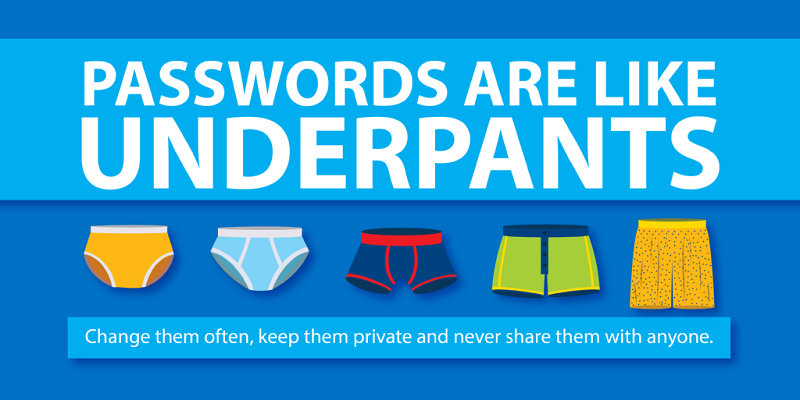Over the last few years, password managers have played a pivotal role in comprehensive cybersecurity. Thus, it’s essential to know how you can make the most of password managers to increase both your safety and productivity. And this article has that covered.
What is a Password Manager?
Password managers are tools used to store login credentials. They’ve been around in different forms for over a decade. You may be aware of the “auto-fill” feature on your browser. Password managers are similar. But they tend to store your details in a much more secure and accessible way. NordPass, for example, uses the latest AES-256 and Argon 2 security standards to provide unprecedented levels of security. Moreover, some password managers offer extra features. For instance, some allow importing your passwords from other devices, apps, and browsers. And as the password managers keep increasing in popularity, they find new ways of keeping your details safe and their software convenient to use.
The Pros of Using a Password Manager
Password managers create unique, robust passwords for each account you use. They are multi-device compatible, and you can use them as you would software, apps, or browser extensions. More advantages of password managers include:
Easy to integrate into everyday use. Password managers work as advertised in the vast majority of situations. Create random, complex passwords. Password managers create unique passwords meeting the requirements of each platform that you use. You can set different lengths, whether you need special characters, and so on. It’s an effortless process of creating new passwords. Auto-login into websites. Some websites allow you to auto-login when you use a password manager. All you have to do is tell your browser not to remember any password and then let the password manager work its magic. Safeguard your password recovery questions. Password recovery questions and answers often become a target of hackers. You use your password manager to store your recovery answers to keep them safe. More than just passwords. You can also use password managers to store other details. It can be online banking info, credit cards, memberships, and other data you want to keep private. Compatible with many devices. You can store your passwords across devices and access your accounts no matter what you use for browsing. Any updated passwords will sync across devices — no manual work to change them needed. Share passwords with family or trusted individuals. You can use a password manager to share access to relevant accounts with your spouse, family members, colleagues, accountants, and so on. Moreover, you can share particular accounts while still keeping the other ones private.
Things You Should Consider About Password Managers
Password managers are convenient tools. But more than anything, you need to remember that they are only a small part of your digital security arsenal. There are some things about password managers you should be aware of:
Password managers may not work on all devices and browsers
You need to take the time to install password managers on your devices. Some password managers may not support all browsers or operating systems. For Window, iOS, and mainstream browsers users, this shouldn’t be a problem. But Linux or Opera fans will need to do a compatibility check. Of course, there may be workarounds. Consult with your password manager provider, and they may be able to help you.
Everything comes down to one password
And that’s both a fantastic strength and a potential weakness of password managers. As long as you remember your master password, you’re fine. But if you forget it or it becomes vulnerable, you’ll have some issues. So, learn to be cautious with your master password.
Not compatible with all websites
Password managers may not function with all sites the same way. In some cases, they won’t be able to autofill your login information. Or you won’t be able to copy/paste the password. In these rare instances, you will have to type in long, complex passwords yourself. And that can be a bit frustrating.
Check for unauthorized changes
When you install a password manager on your smartphone or tablet, it may make unauthorized changes such as disabling encryption settings. Be sure to check your permissions for software and installation.
Single sign-on security
Password managers use a single sign-on technology. It’s not dangerous, but it’s something you need to be aware of. If your computer or network experiences frequent data breaches, your master password may become vulnerable to a potential hack. For example, if a hacker has implanted a keylogger onto your computer, they can use it to access all your other accounts. That’s why a password manager should be a part of broader digital security. You can prevent unauthorized access by using extra security tools such as antivirus software, VPN, and file encryption services.
The Beginner Guide to Choosing the Best VPN for Privacy 10 Best Free Antivirus App for Android mobile phone & tablet
Security Essentials: Getting the Most Out of a Password Manager
Password managers are useful tools that you should be using. They are easy to use and integrate into everyday life, making everything you do online not only safer, but simpler. Plus, it’s a much more secure compared to the traditional way of remembering and storing passwords. But password managers are not the only tool you should be using to protect yourself online. They should be a part of a comprehensive security strategy to ensure your accounts are safe. Thus, you should educate yourself about cybersecurity and its tools to protect your privacy online at all times. You can start by using a password manager.
